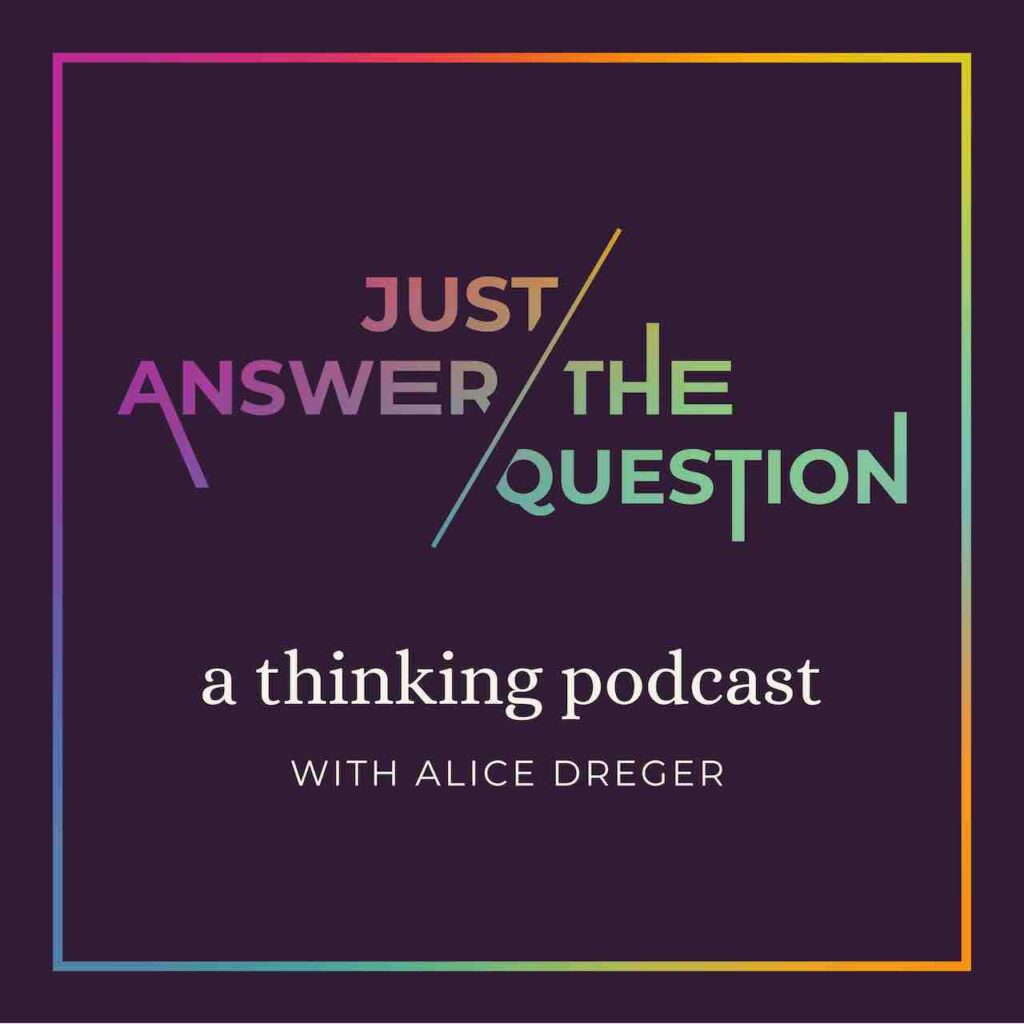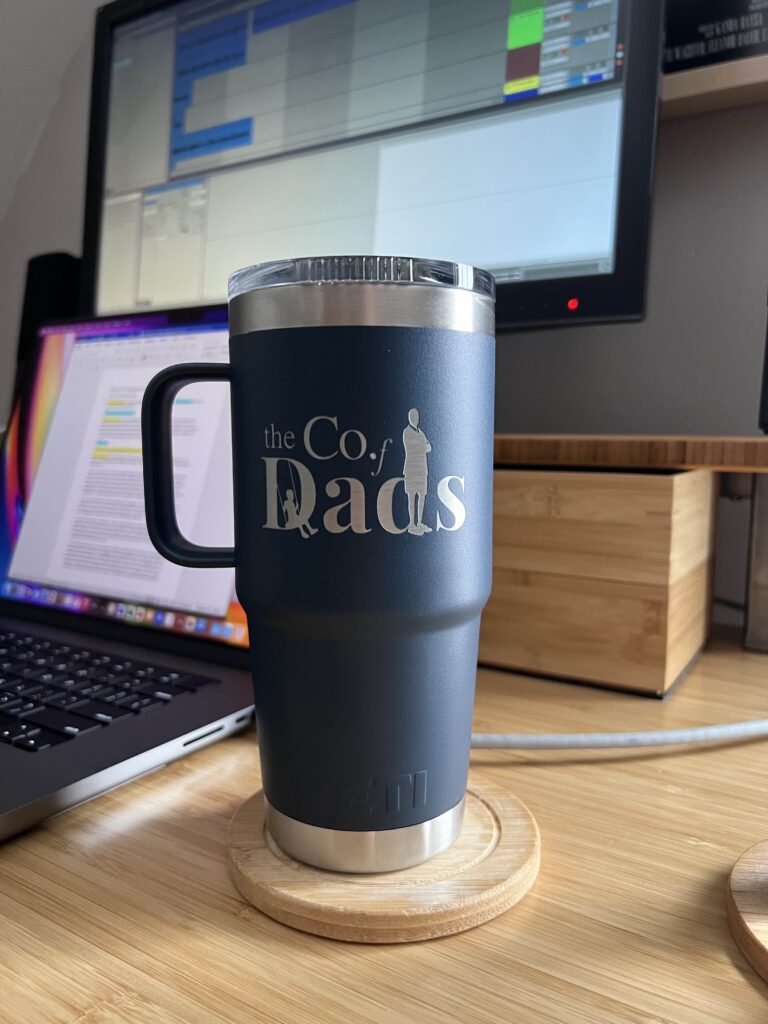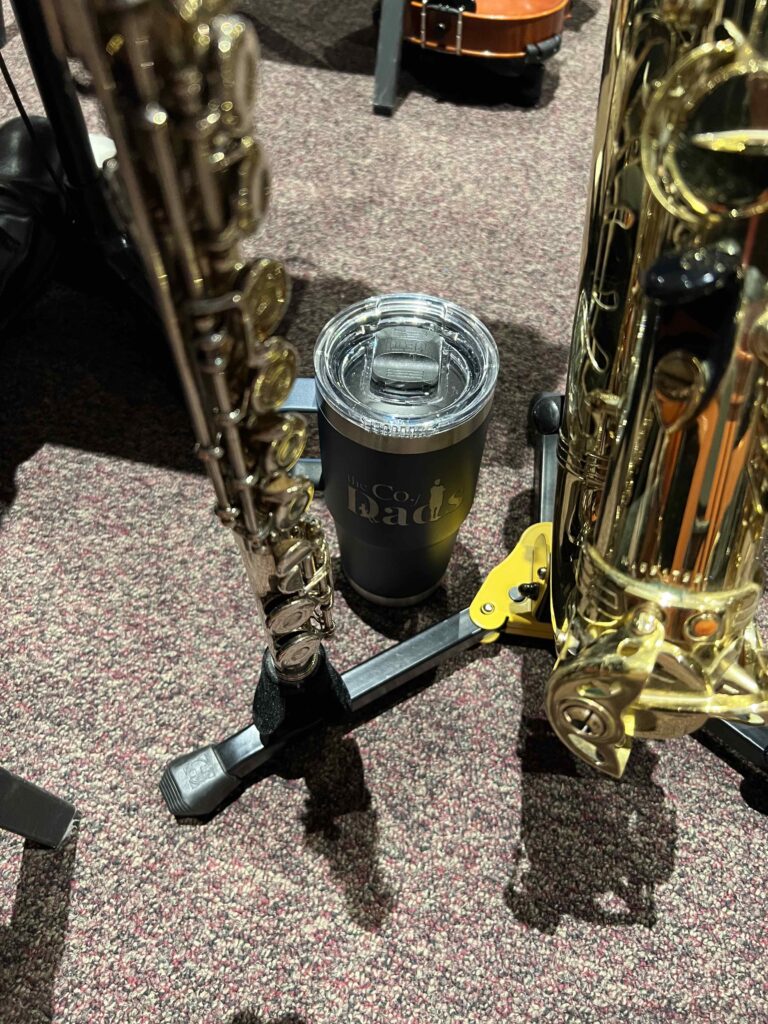I’ve been working on a project since the beginning of the year and it’s finally ready to see the light of day, so I’d like to share a bit about it should you be interested. It’s different from the usual ground I’ve covered here and elsewhere over the years.
Just Answer the Question is a thinking podcast created and hosted by Alice Dreger, the esteemed writer, historian, and speaker. (She also happens to be a friend, former neighbor, and now colleague.) I’m the producer*, and I also provide original music for the show. For a little more background on how this came to be, see Alice’s newsletter on the topic.
Yes, I know, seemingly everyone has a podcast these days. (Oddly enough, my previous post was about my guesting on another show.) There’s a lot of content out there, maybe even too much, and we hope to create a thoughtful space separate from the news cycle and whatever the controversy du jour may be. From the show’s website:
For each episode of Just Answer the Question, we take one question and use it like a corkscrew to open a bottle of intellectual wine that we then share with three helpers. Some podcasts call their visitors “guests,” but we consider ours “helpers,” because they help us think through our questions by sharing their experiences, research, and insights.
After we’ve recorded conversations with our episode-specific helpers, our creator Alice Dreger and producer Mike Teager then use the recordings as primary sources to compose episodes that take you through a guided tour of the exploration of our central question. Alice contributes short essays and narrative glue, while Mike contributes original musical framing. Our goal is to give you somewhere around an hour of time to think, feel, remember, laugh, listen, and examine the threads that weave through our lives. Our hope is that we help you enjoy this big collaboration as much as we do.
– JATQ website
You can also watch our promo video on our website and Twitter.
The podcast is free and the first three episodes are available now on all main directories with more in the pipeline. New episodes should appear about every ~3 weeks.
We’ve recorded conversations with many compelling, thoughtful folks already—some you may have heard of and others who may be new to you. But regardless of name recognition, the discussions have been consistently rich and engaging.
We also offer additional content via a paid subscription. This is known as the Tangent Tier. For $5 per month, you can access the long-form interviews from which we pull excerpts for the main (free) podcast episodes. We may ultimately only use ~15 minutes or so of a given interview for an episode, but we often talk with our helpers for ~40-60 minutes each, and much is left on the cutting-room floor. For those interested in more of the “two people talking” format, this is that (compared to the more produced format of Just Answer the Question).
If you’re interested in the Tangent Tier, more info is here and you can subscribe here. And since the first three main episodes are now available, the accompanying Tangent Tier installments are too. (Nine of them, to be exact: three for each episode.)
The first three episodes are as follows:
– “What’s have I done?” — An examination of how we take stock of our lives: as a continuous narrative or as a series of episodes. Featuring discussions with bioethicist Dr. Tod Chambers and psychologists Dr. Dan McAdams and Dr. Jonathan Adler.
– “What’s it like to play me?” — A look at role-playing, including as oneself in different contexts. Featuring discussions with radio personality and playwright Peter Sagal, actress Jennifer Riker, and narrator and audio artist Tavia Gilbert.
– “Can a father be a mother?” — Reflections on being a primary caregiver. Featuring discussions with journalist and The Company of Dads founder Paul Sullivan, psychologist Dr. Jonathan Adler, and yours truly.
Do give a listen to the podcast if it sounds like something you’d like to explore.
Relevant links:
Just Answer the Question website
Subscribe to the podcast via Apple Podcasts, Spotify, Amazon, Google Podcasts, and more…
Subscribe to the Tangent Tier here
—
*As for my being the producer, I’m reminded of a line from one of my favorite movies, Get Shorty, delivered by a confident Chili Palmer: “I don’t think the producer has to know much.”
In all seriousness, when Alice first asked me about collaborating on this, I was (and am) beyond flattered, and I admitted that I knew very little (i.e., nothing) about producing generally and podcast production specifically. That said, in addition to being friends, we knew that we liked working together when I used to report for East Lansing Info. So we used that and our shared penchant for organization as a starting point, and here we are. The learning curve has been and remains steep but rewarding.


